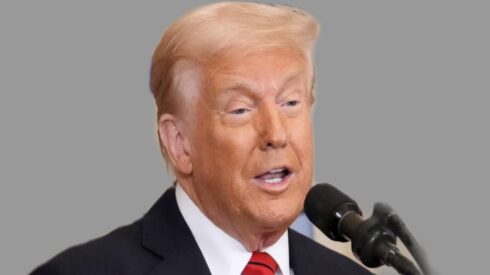President Donald Trump has categorically denied signing a proclamation invoking the Alien Enemies Act, a centuries-old law used to justify the deportation of alleged criminal migrants. In a recent statement, Trump insisted that he had no direct involvement in the order, contradicting reports that his administration used the act to expel hundreds of Venezuelan migrants suspected of gang affiliations.
President Donald Trump’s denial has sent shockwaves through political and legal circles, raising serious concerns about who authorized the enforcement of the act. The confusion surrounding the proclamation has led to growing speculation that either a high-ranking official acted without Trump’s explicit approval or that procedural missteps were made within the administration.
President Donald Trump Faces Questions Over Deportations
Donald Trump defended his administration’s strict immigration policies but distanced himself from the specific use of the Alien Enemies Act, stating that he did not personally sign any document related to mass deportations. The controversial deportation order targeted suspected members of the Venezuelan gang “Tren de Aragua”, with deportation flights reportedly carried out over a single weekend.
Trump’s strong stance on immigration has always been a focal point of his political agenda. While he has advocated for tougher measures to remove criminal elements from the U.S., he now finds himself caught in a legal and political battle over whether the use of wartime powers was justified in this case. The lack of clarity on his direct involvement has fueled both criticism and speculation.
President Donald Trump Faces Legal Challenges Over Executive Authority
Trump’s administration now faces legal battles over the legitimacy of the Alien Enemies Act proclamation, with a U.S. District Court temporarily blocking further deportations. Judge James Boasberg questioned whether the act, originally designed for wartime scenarios, could be applied to undocumented migrants in peacetime. The court’s intervention has sparked heated debates on executive power.
Trump’s legal team argues that the proclamation was lawfully issued and that deportations were necessary to safeguard national security. However, immigration rights activists and legal experts are contesting whether the act’s use was constitutional. If Trump’s denial holds weight, it could lead to further investigations into who authorized the order and whether it bypassed standard legal protocols.
President Donald Trump Challenges the Judiciary’s Intervention
President Donald Trump has strongly criticized the judiciary’s interference in immigration policy, calling the court’s decision to halt deportations a direct attack on his presidential authority. He argued that his administration has always acted within legal bounds and that judicial overreach is obstructing critical national security measures.
Trump’s rhetoric against judicial intervention is not new. Throughout his presidency, he has frequently clashed with the courts over immigration policies, including travel bans and border security measures. His latest statements suggest that he sees this legal challenge as yet another attempt to undermine his administration’s authority.
President Donald Trump’s Opponents and Supporters React
Donald Trump’s denial has divided public opinion, with his supporters backing his stance on strong border enforcement, while critics question whether he is avoiding responsibility for a controversial executive order. Conservative commentators argue that the deportation of criminal elements is necessary, regardless of legal technicalities, while progressives fear that the use of the Alien Enemies Act could set a dangerous precedent.
Donald Trump’s base remains largely supportive, believing that his policies are being unfairly scrutinized by the media and the courts. However, immigration rights groups have launched multiple lawsuits, demanding greater transparency on who within the administration authorized the proclamation. This growing legal battle could impact Trump’s influence in future immigration policy debates.
President Donald Trump’s Political Future Amid Controversy
Donald Trump’s latest controversy adds to the list of legal and political battles shaping his post-presidency legacy. If it is proven that the order was issued without his knowledge, it could indicate serious administrative mismanagement within his team. However, if the courts rule that his administration misused the Alien Enemies Act, it could fuel further legal scrutiny of his immigration policies.
Donald Trump’s stance on immigration has always been a defining feature of his political career. Whether this latest incident strengthens or weakens his influence remains to be seen. What is certain is that his denial of signing the Alien Enemies Act proclamation will continue to dominate political discourse in the coming weeks, shaping debates on executive power, immigration law, and the role of the judiciary in national security matters.














